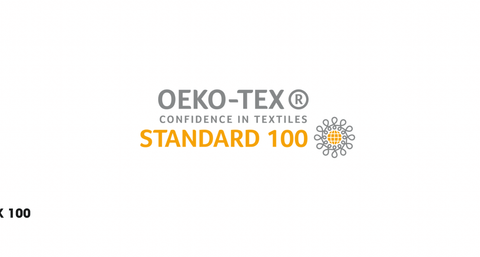

What is the Oekotex 100 certificate?
The OEKO-TEX® Standard 100 is an independent testing and certification system for textile raw, intermediate and end products. If an article has this seal, this means that none of the components of the article contain any harmful substances and the product is harmless to health.
However, the test for harmful substances is only carried out on the finished product. In contrast to GOTS, the entire production chain is not considered. Social factors also play no role for the Oeko Tex seal.
This problem is particularly evident with conventional cotton. This consists largely of genetically modified varieties, which are treated with many pesticides during harvest and with chemicals during subsequent processing. Due to the subsequent cleaning processes, however, the finished product has a very low proportion of harmful substances, which meets the Oeko Tex criteria. Any child labor and air and soil pollution are also not included in the assessment.
The designation "Oeko" can also be somewhat misleading, since it does not have to be an ecologically (biologically) manufactured product.
What are the advantages of Oekotex 100?
Testing for harmful substances ensures a high level of safety for consumers. Oekotex 100 also contributes to environmental protection by avoiding harmful chemicals.
GOTS vs. Oekotex 100: Which is better?
However, the pollutant testing is only carried out on the finished product. Unlike GOTS, the entire production chain is not taken into account. Social factors also play no role for the Oeko Tex seal.
This problem is particularly evident with conventional cotton. This consists largely of genetically modified varieties, which are treated with many pesticides during harvest and with chemicals during subsequent processing. However, due to the subsequent cleaning processes, the finished product contains a very low proportion of pollutants, which meets the Oeko Tex criteria. Any child labor as well as air and soil pollution are also not taken into account in the assessment.
The term “Oeko” can also seem a bit misleading, as the products do not necessarily have to be ecologically (biologically) produced.
In principle, it cannot be said which certification is better, as it depends on the individual requirements. Anyone who attaches particular importance to ecological aspects is in good hands with GOTS. If you would like to pay additional attention to testing for harmful substances, Oekotex 100 is a better choice.


